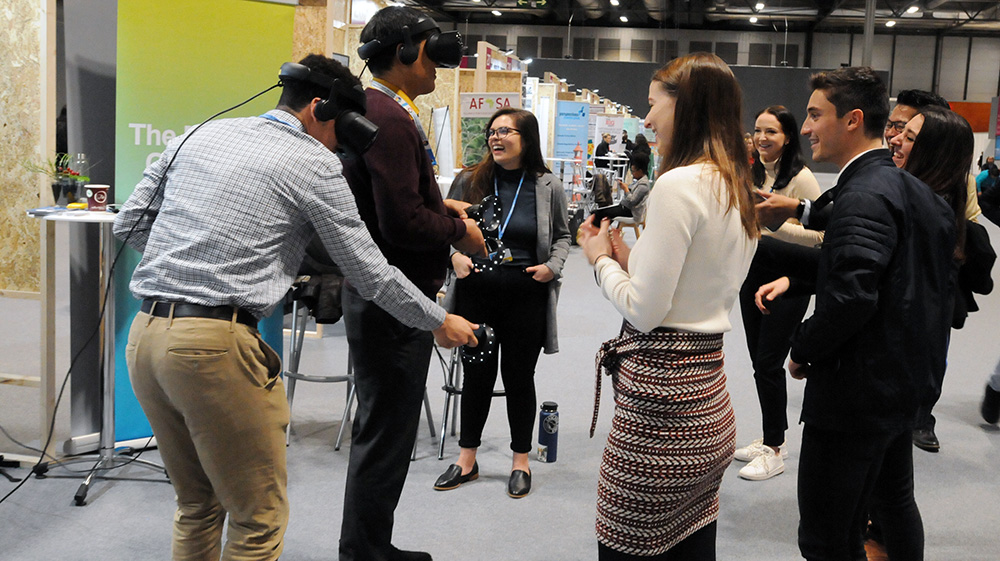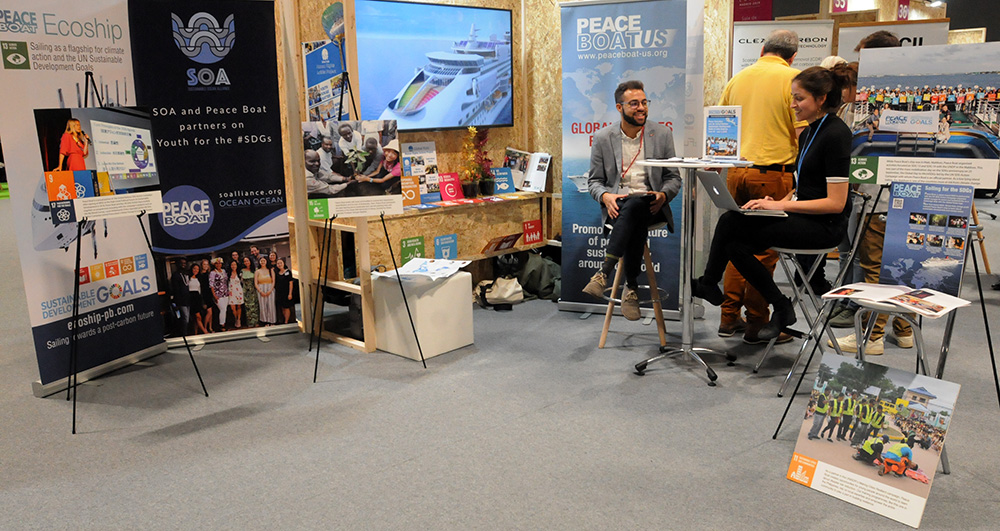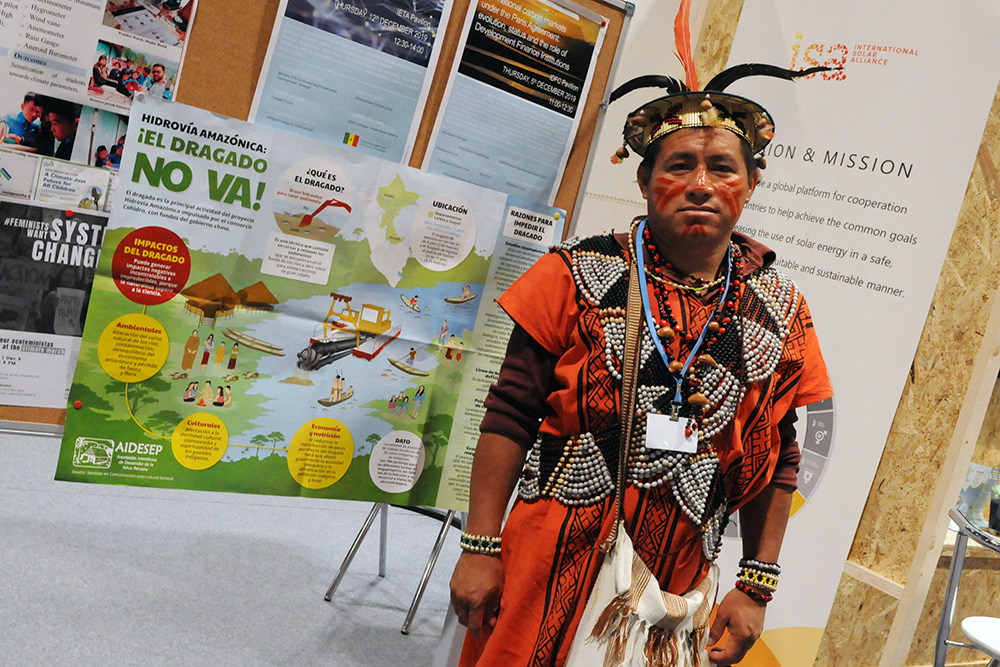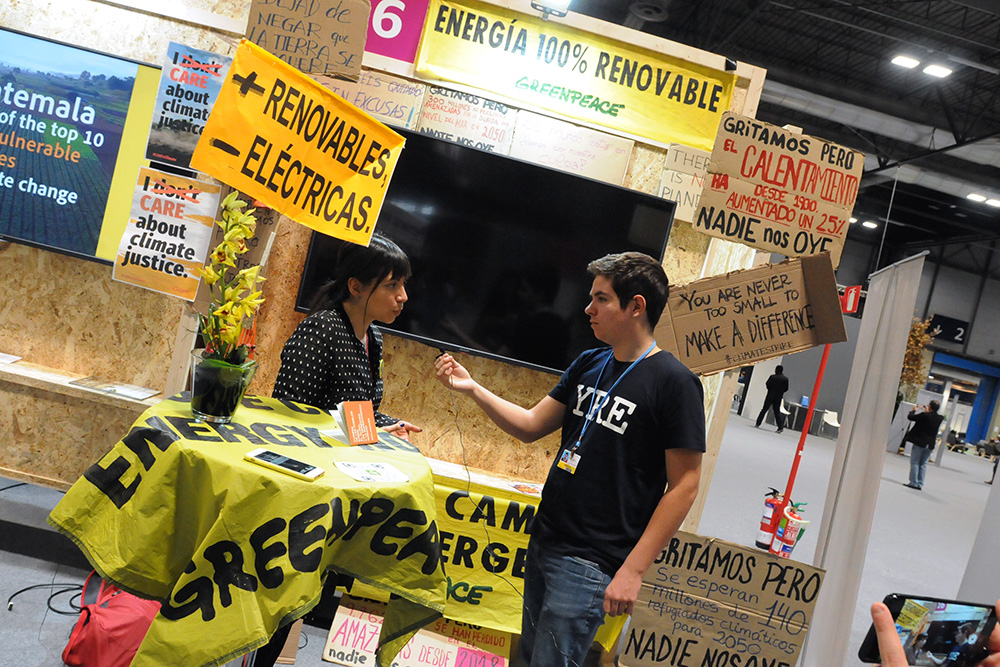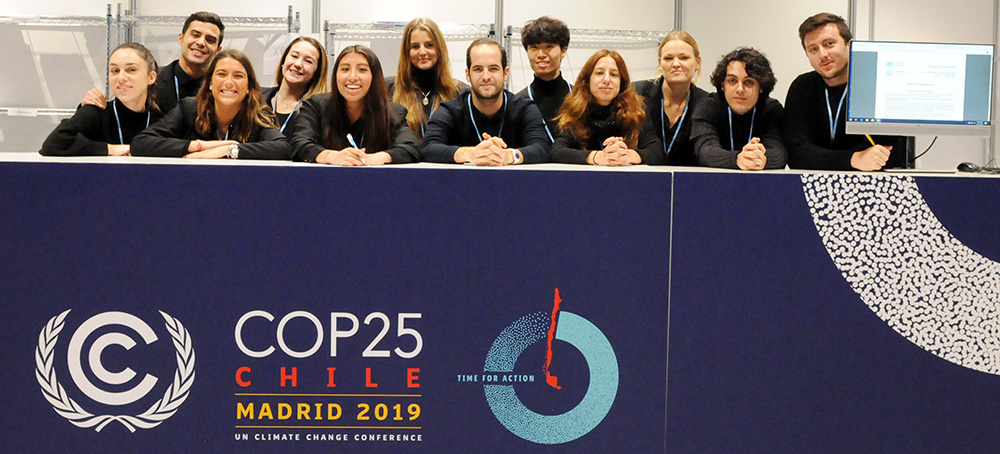Summary
Events Covered on Thursday, 12 December 2019
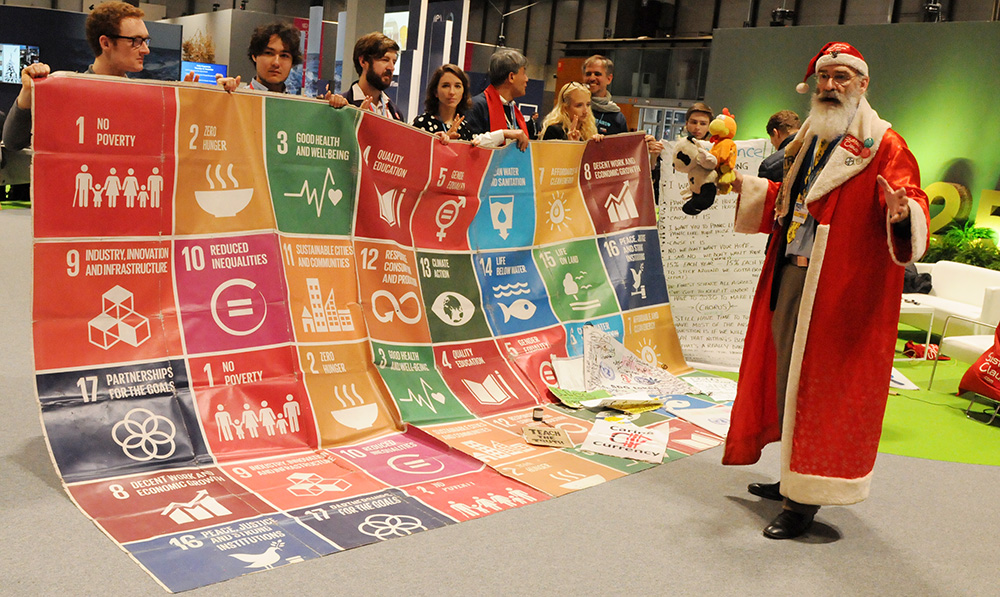
The following events were covered by IISD Reporting Services on Thursday, 12 December 2019:
Text written by IISD/ENB | Wanja Dorothy Nyingi, Ph.D., and Tallash Kantai
Photos by IISD/ENB | Diego Noguera
For photo reprint permissions, please follow instructions at our Attribution Regulations for Meeting Photo Usage Page
Promoting a Digital Revolution to Increase Climate Action in the Agriculture and Forestry Sectors
Presented by the Food and Agriculture Organization of the UN (FAO)
Posted by IISD Reporting Services video for Saturday, 14 December 2019
This event demonstrated how cutting-edge technological and digital innovations can be key allies in meeting climate-related targets in the agriculture and forestry sectors. Participants illustrated the potential of the agriculture sector in championing implementation of the Paris Agreement through a technological revolution. The shared experiences from the event will feed into public policy briefings on how to facilitate the technological and digital revolution for sustainable and resilient agriculture for dissemination to ministries of agriculture at the FAO Regional Conferences in 2020.
Eve Crowley, Deputy Regional Representative, FAO Regional Office for Latin America and the Caribbean (FAORLC), moderated this event, noting that reducing emissions while increasing yield in the agriculture sector requires enhancing mitigation, adaptation and resilience, which can all be driven by technology.
Alma Cardenas, Senior Programme Manager, Artificial Intelligence (AI) for Earth, Microsoft, said the digital revolution has assured solutions for mitigation and adaptation. She highlighted, inter alia: sensors in farms that can provide real time information on soil conditions such as moisture and pH; weather forecast algorithms to provide guidance on when to sow or harvest; and drones that collect information for digital mapping to guide irrigation or fertilization. She noted that in order to ensure the full impact of the promise of technology, capacity building, affordability, and accessibility to smallholder farmers must be ensured.
René Castro, Assistant Director-General, FAO, announced that FAO has finalized the first digital land restoration map for Africa. He noted that these maps reveal the extent of degraded areas on the continent and showing areas that can be restored and how. He noted that such maps will be replicated in Latin America and Asia in 2020. These maps, he noted, can be used by signatories to the global open data policy, and will enable national planning as well as reporting to the three Rio Conventions. He further reported that these maps empower people at the grassroots level and attract youth to work in the agriculture and forestry sectors. He also noted great advances in cost- and time-efficiency since the publication of the first human genome in the 1990s, with applicability in agriculture, pointing to new challenges facing an increasingly digitized world, including the lack of an enabling legislative environment.
Mauricio Castro Schmitz, Deputy Director, Land Unit Latin America and the Caribbean, The Nature Conservancy (TNC), discussed technological and digital platforms by TNC for sustainable interventions in agriculture. Presenting the Participatory Integrated Climate Services for Agriculture (PICSA) approach, he highlighted support for 600 farmers in Honduras to visualize the state of their farms through predictive modeling, in order to take actions for sustainable and profitable practices for the next season. He also presented a traceability project in Belize that has permitted tracing fisheries resources from ocean to table, and thus enabling decisions on fishing quotas. He further discussed Agroideal, an online tool used in Brazil to identify areas for expansion of soy farming while minimizing environmental impacts.
Pedro Bustos, President, Regional Fund for Agriculture Technology (FONTAGRO), discussed how to bring together science and agriculture to achieve transformation through digital technologies, sharing FONTAGRO’s experience. He stressed that agriculture can be part of the solution to climate change, noting that it must be done right and involve people. He stressed the importance of technology enhancing transparency and traceability in the agriculture sector, and underscored the need to start from the grassroots level, through multi-stakeholder participation, to encourage food traceability along the whole supply chain, and provide transparency to both farmers and consumers.
During the discussion, panelists and participants noted that technological transformation supports a circular economy and will drive more private sector investments, and open up green financial mechanisms as incentives for good practices. On data sharing, participants noted data privacy and sovereignty as a key challenge to information access, and that traceability platforms require policy support to ensure data sharing.
Discussing equity and justice in digitization, Bustos noted that digitization will encourage youth involvement in smallholder farming, noting that this calls for greater investment into infrastructure to prevent rural-to-urban migration. He pointed to the power of farmers’ cooperatives in lobbying for legislative change, noting that this could drive digitization. Cardenas called for a shift towards transformations that consider the “triple bottom line,” including economic, social and environmental concerns, to promote just digitization.
Castro highlighted that training local communities promotes ownership of both the challenges and solutions, noting that these communities innovate and adapt methodologies to ensure these solutions work for them.
On consumer choices, discussions considered the existing gap for consumer tools for traceability, and noted the importance of transparency on farming practices, transportation, and other aspects of the market chain.
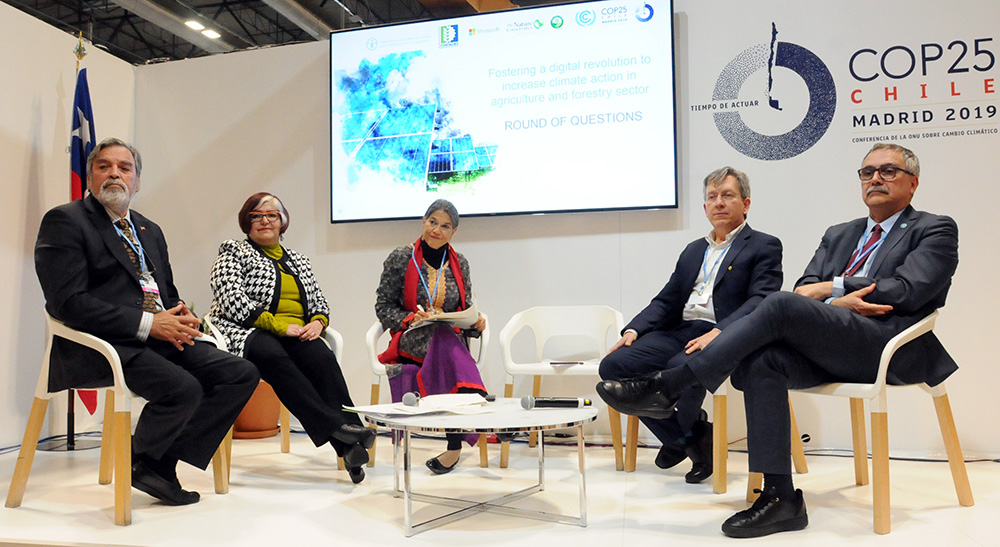
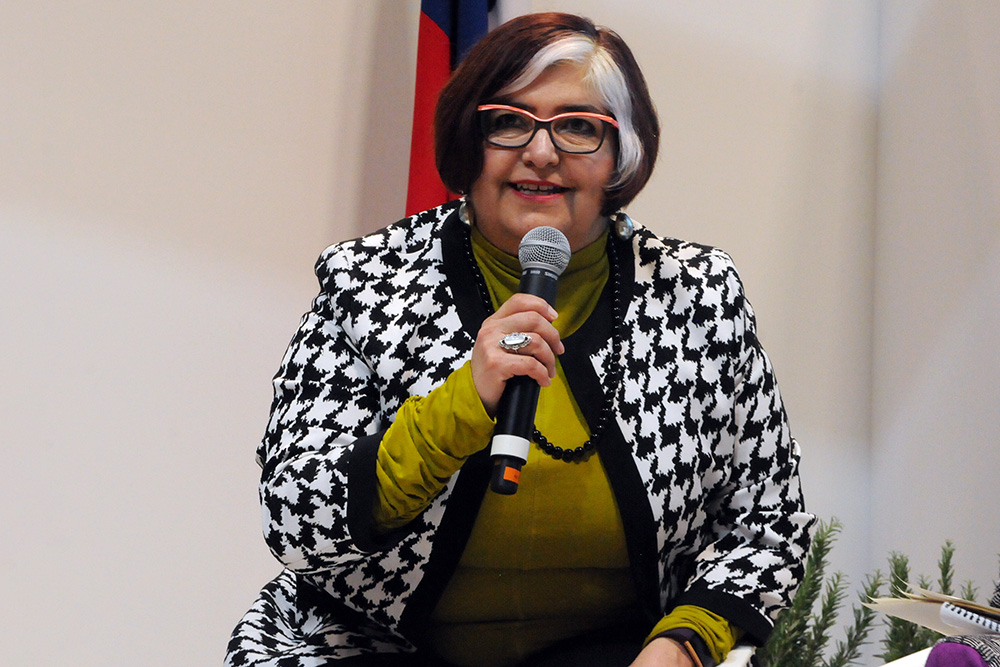

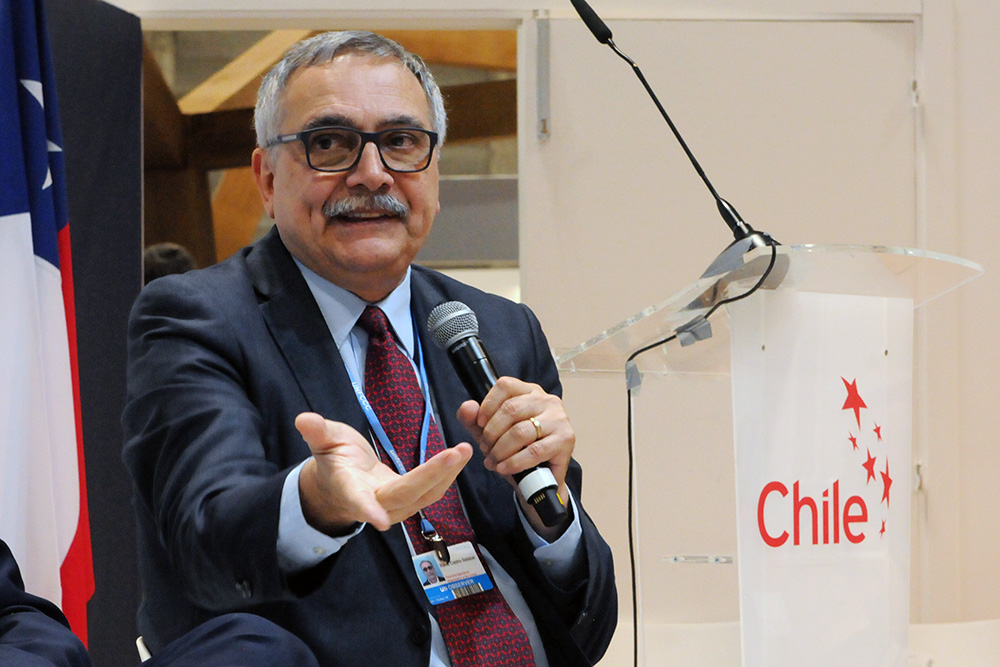
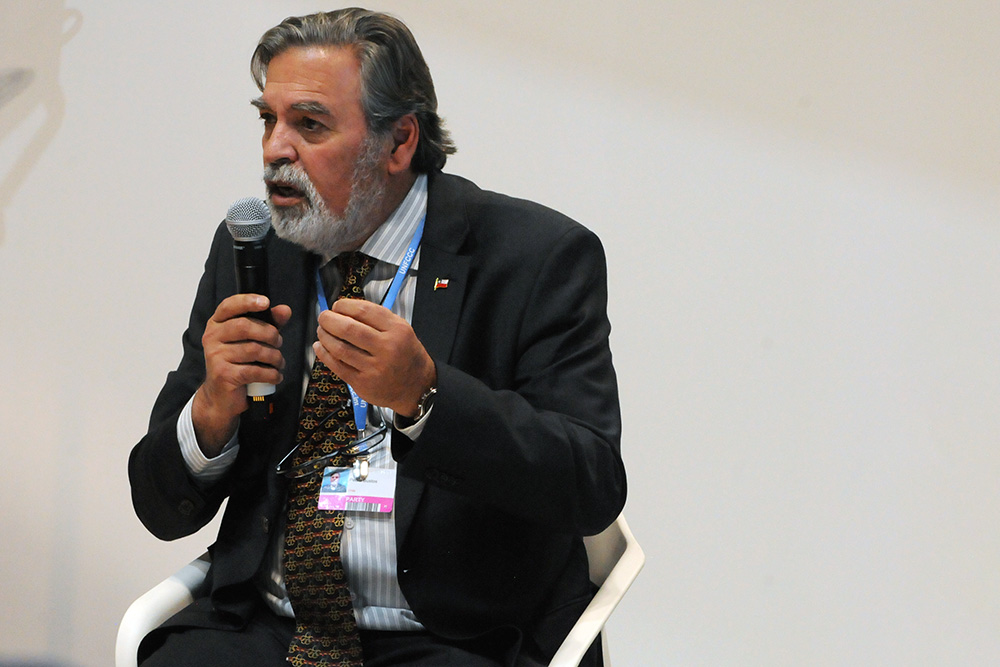
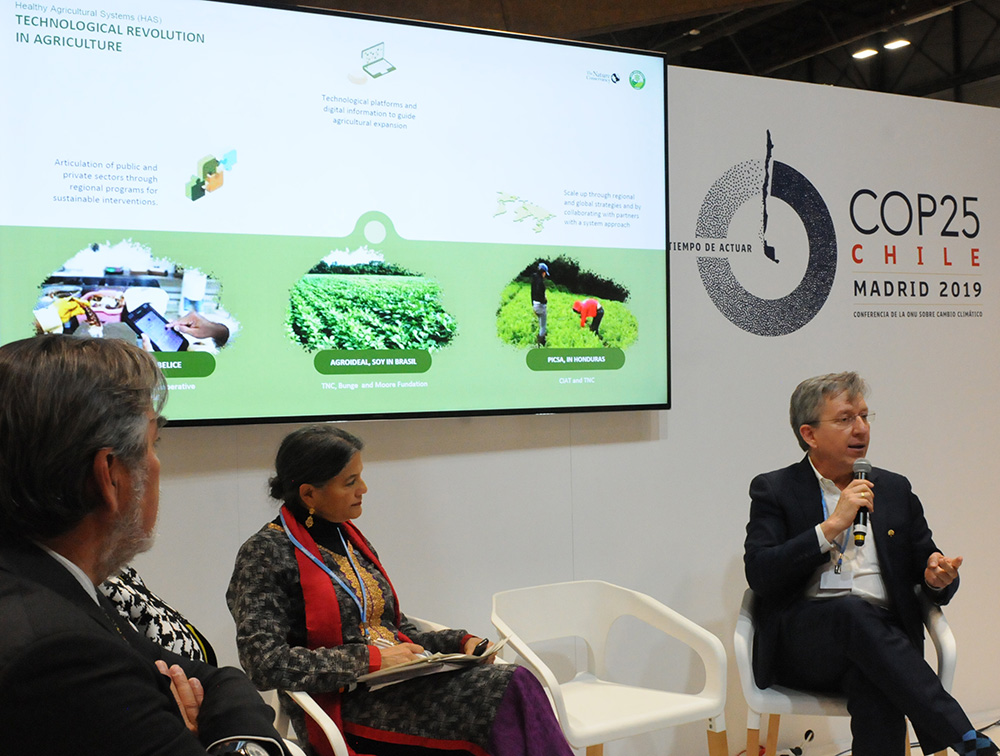
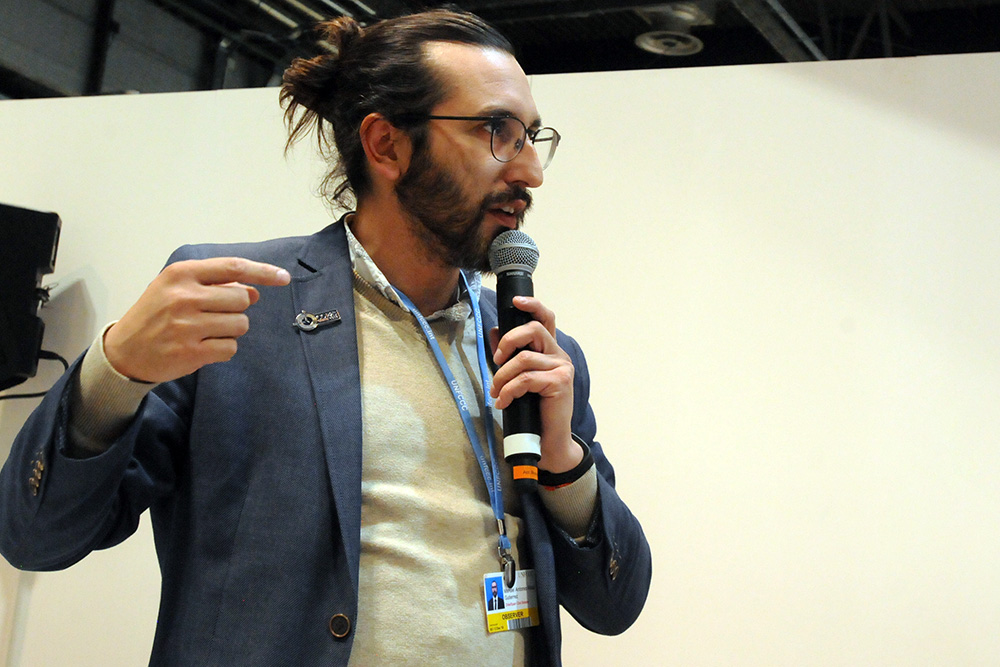
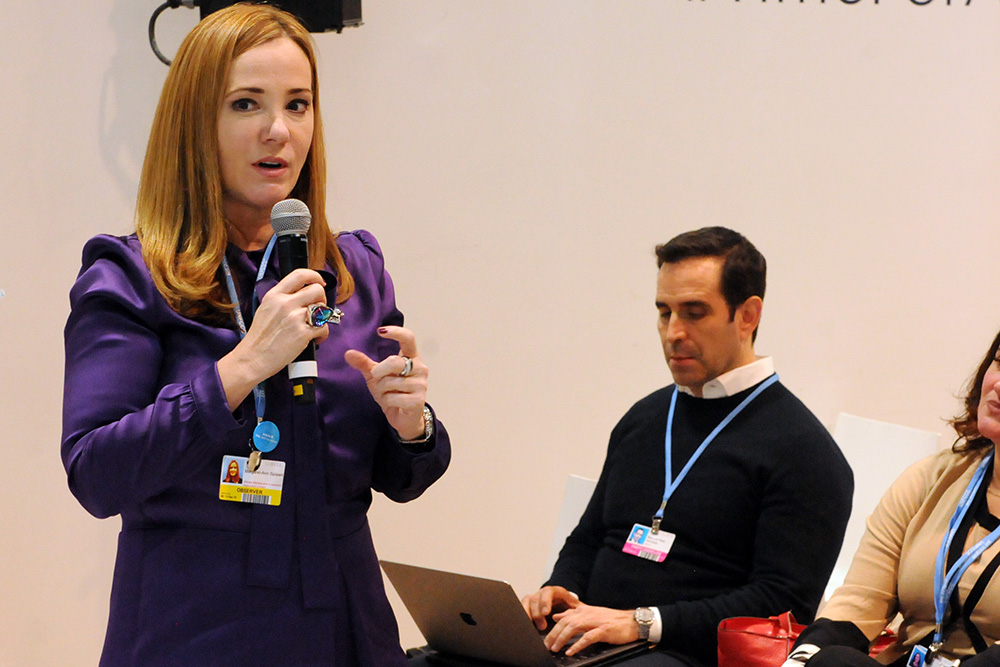
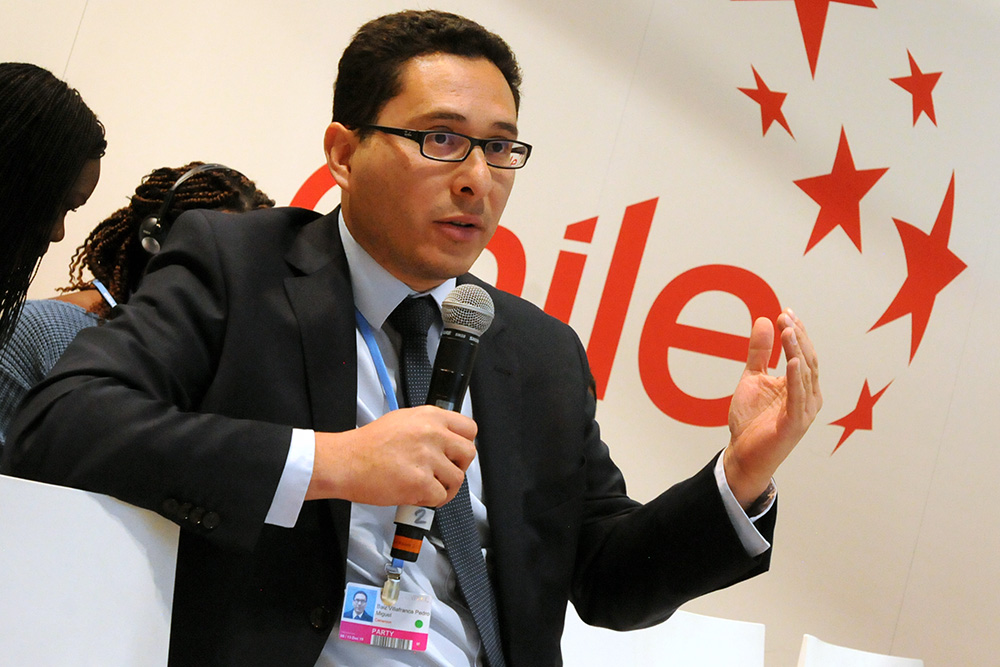
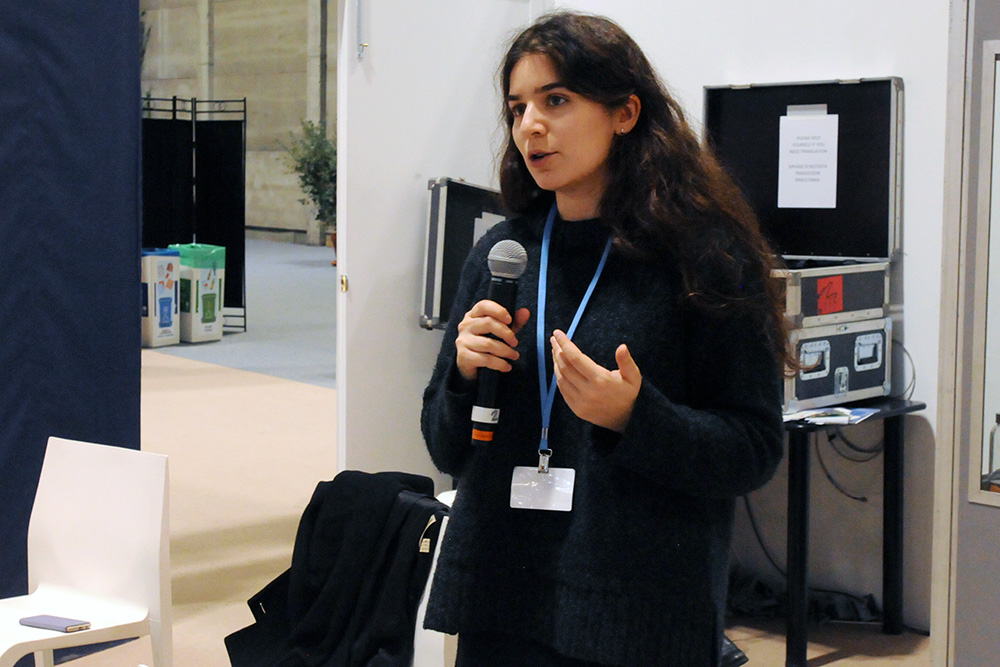
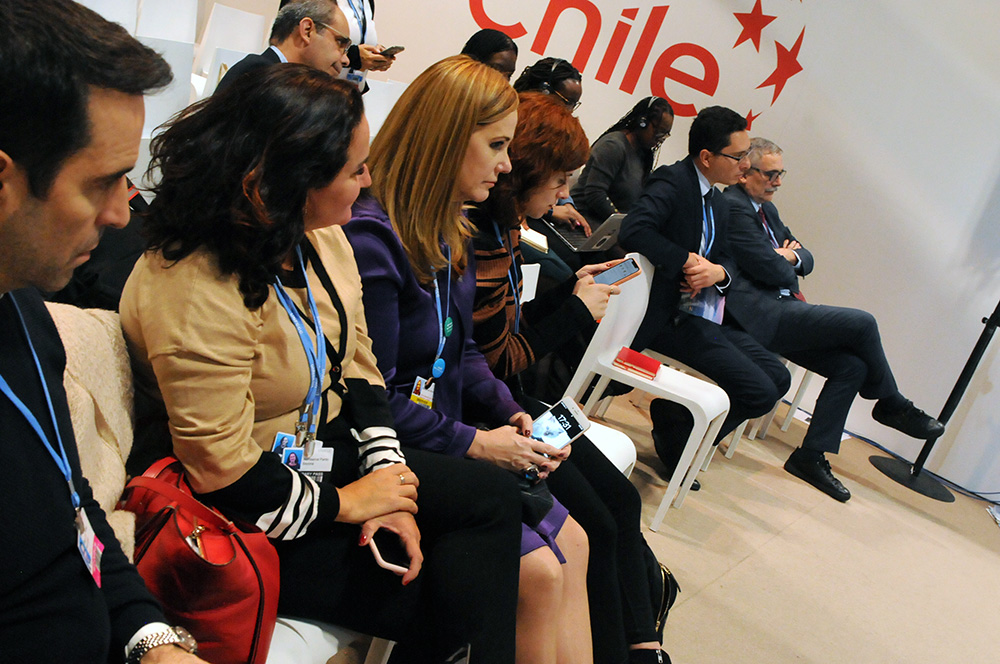
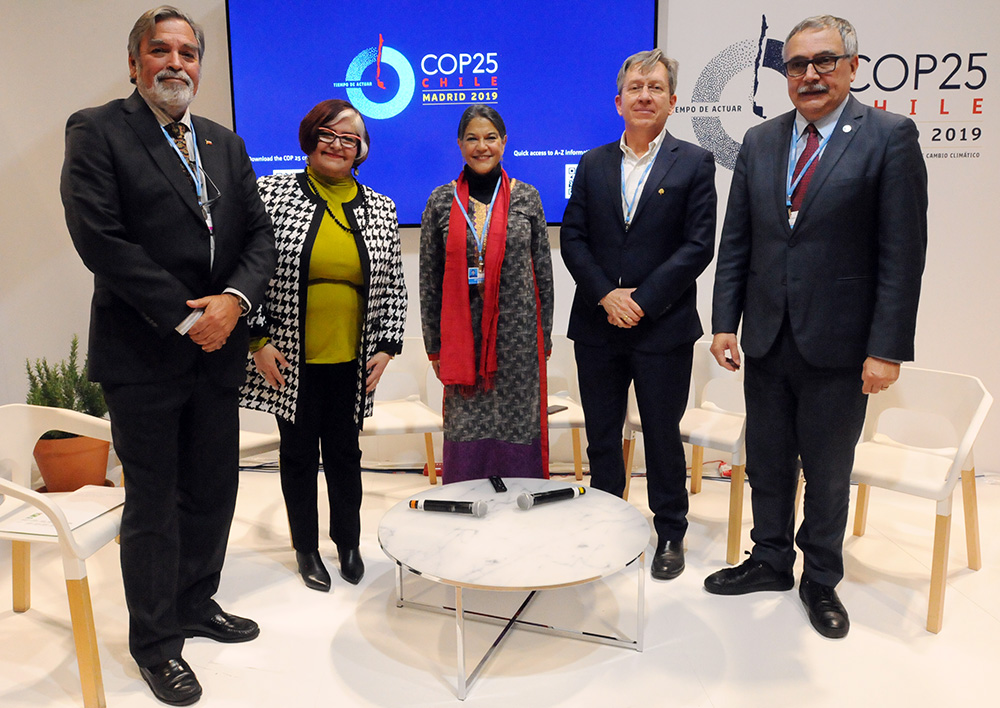
Linking Technological Innovation and Climate Change Actions for a World Free of Hunger, Malnutrition, and Poverty
Presented by the Food and Agriculture Organization of the UN (FAO), International Fund for Agricultural Development, World Food Programme, the Convention on Biological Diversity, World Intellectual Property Organization, World Meteorological Organization, UN Economic Commission for Latin America and the Caribbean, and Office of the UN High Commissioner for Human Rights
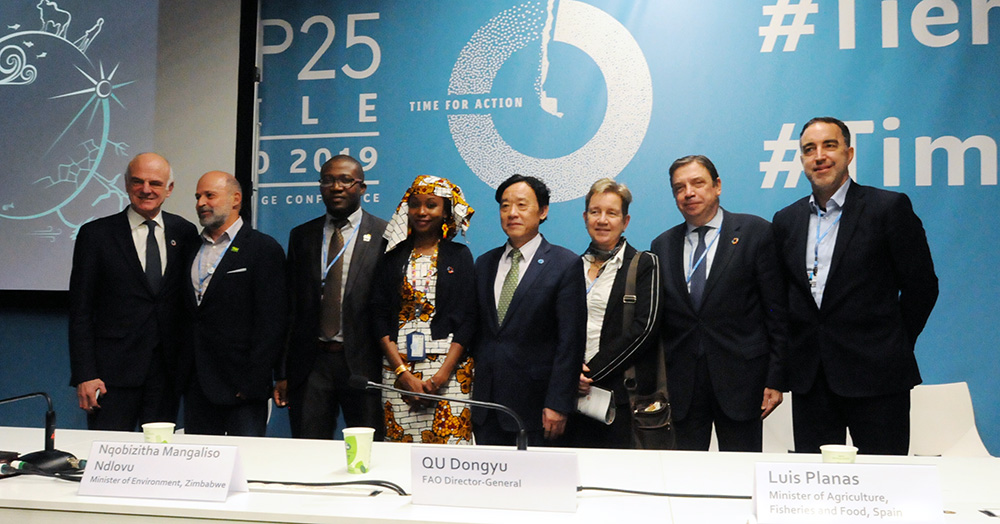
This high-level event, focusing on Sustainable Development Goal (SDG) 2 (zero hunger), generated discussions on overcoming challenges imposed by climate change on achieving SDG 2.
This event was moderated by David Nabarro, Facilitator of Sustainable Development, 4SD, who noted the importance of bringing SDG 2 into the climate discourse, stating that “in real life, you cannot work for the future without addressing food, hunger, and malnutrition.”
Luis Planas Puchades, Minister of Agriculture, Fisheries and Food, Spain, highlighted the important role of technology and innovation in creating sustainable, climate-friendly agricultural practices. Planas highlighted that the country is working on various initiatives to innovate the sector, including precision crop management, animal status monitoring, pasture prediction systems, agriculture insurance, and enhancing the role of women, noting that these can be replicated in developing countries.
Nqobizitha Mangaliso Ndlovu, Minister of Environment, Climate, Tourism and Hospitality Industry, Zimbabwe, underlined that the SDGs address key development challenges that affect daily lives in sub-Saharan Africa. Noting the climate change impacts faced by his country, he called for urgent interventions to assist farmers to better tackle climate-related challenges, such as extreme floods and droughts. He also highlighted the need to implement innovation and transformative adaptation and mitigation efforts, including climate-smart agriculture (CSA).
Monika Weber-Fahr, CEO, Global Water Partnership, highlighted that the Partnership, which is present in 180 countries, creates multi-stakeholder networks to address various water challenges, and promotes innovations that benefit the agriculture sector. She noted that no innovation can work without a governance perspective, explaining that with the unpredictability of water resources, governments have to be involved to ensure effective and efficient water distribution and sharing. She stressed that technology can help to build trust within the agriculture sector, and called for innovation to curb the effect of fertilizers on water quality.
Stephen Edking, CEO, Rice Exchange, described his organization as the largest rice marketplace in the world, which aims to protect both farmers and consumers. He noted that consumers are more discerning, highlighting that the organization is partnering with Fujitsu and others to incorporate blockchain technology to assure consumers of sustainably produced rice.
Hindou Oumarou Ibrahim, Association des Femmes Peules et Peuples Autochtones, Chad, noted that traditional knowledge and observations by indigenous peoples can assist in predicting weather and climatic conditions, which can be used to enhance food security. She highlighted that in Chad, pastoralists’ nomadic movements provide manure to fertilize soil, which raises crop yields for farmers. She underscored the need to incorporate traditional knowledge into national planning processes, alongside western science to generate innovations that promote food security. She further called for recognition of traditional knowledge at the same level as western science in order to use “all the capacity we have” to achieve all the SDGs together.
Carlos Manuel Rodríguez, Minister of Environment and Energy, Costa Rica, urged adding policy development to science, technology, and action in the discourse on tackling climate change and achieving the 2030 Agenda for Sustainable Development. He highlighted the importance of a new institutional framework to address current global challenges, noting that this may require a reformulation of government ministries in order to align goals and targets. Noting that biodiversity is at the heart of both the ministries of environment and agriculture, he stressed the need for them to work together to ensure that food production becomes more sustainable and environmentally friendly. He also highlighted the country’s Tropical Carbon Tax, which ensures that profits from fossil fuels contribute to environmental conservation efforts.
In the ensuing discussion, participants considered, inter alia, the need for: certainty of policies for farmers to go green”; clear definitions on the terminology related to agriculture so “we do not get lost in translation;” and technology transfer to developing countries for innovations related to agriculture.
Closing the session and underlining the need to empower farmers, Qu Dongyu, Director-General, FAO, stressed that innovation is the leverage with which to draw in key players in order to address the climate-food nexus. Noting that we need a different mindset, he highlighted that governments are responsible for providing enabling environments for innovations that benefit farmers and the climate, and the need for coherence between farmers, governments and the private sector. He further called for inter-ministerial coordination, noting this will speed up the achievement of all the SDGs.
CONTACT
Julia Wolf, FAO | Julia.Wolf@fao.org
MORE INFORMATION
http://www.fao.org/climate-change/international-fora/major-events/cop-25/en/
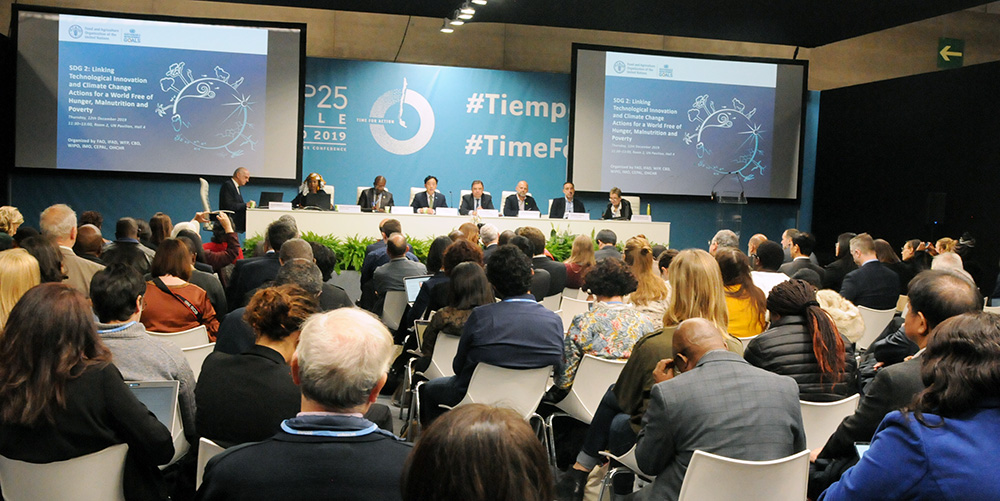
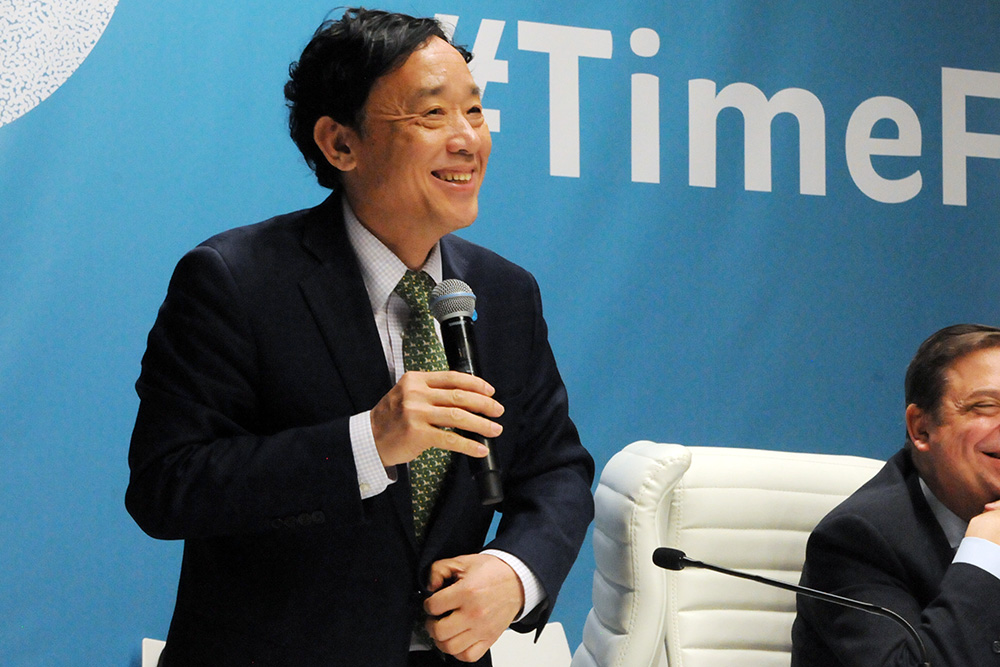
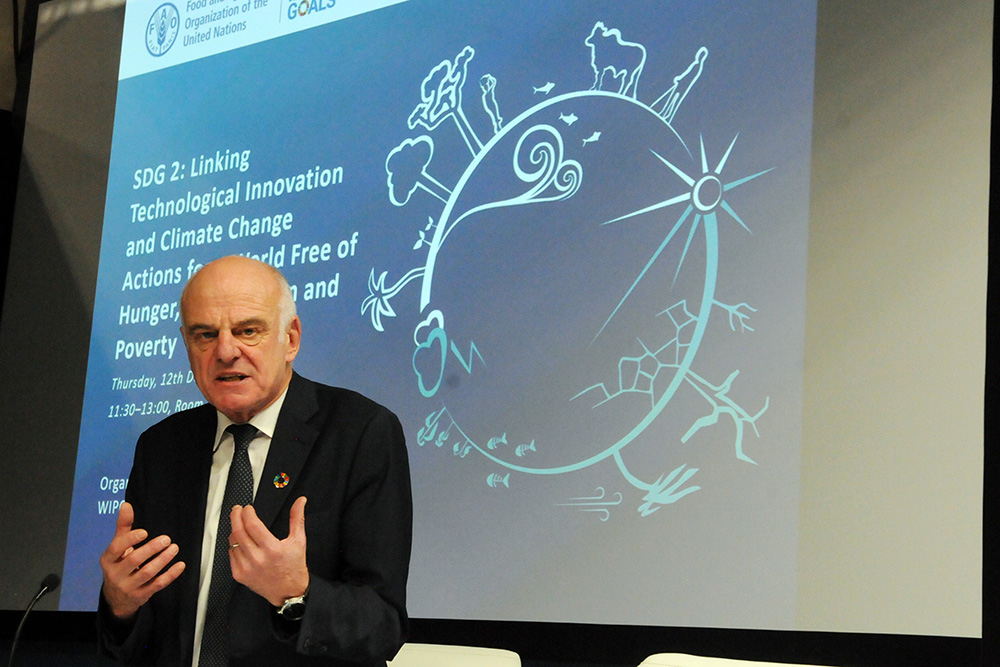
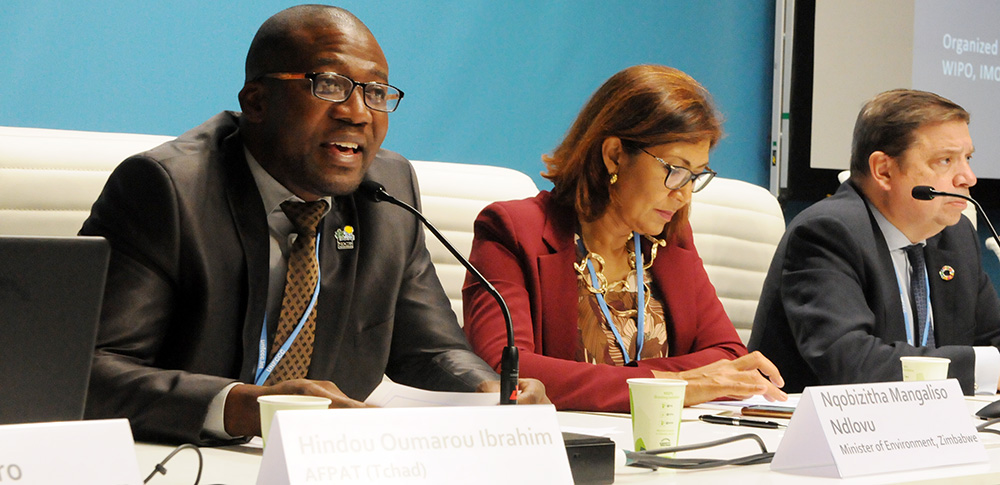
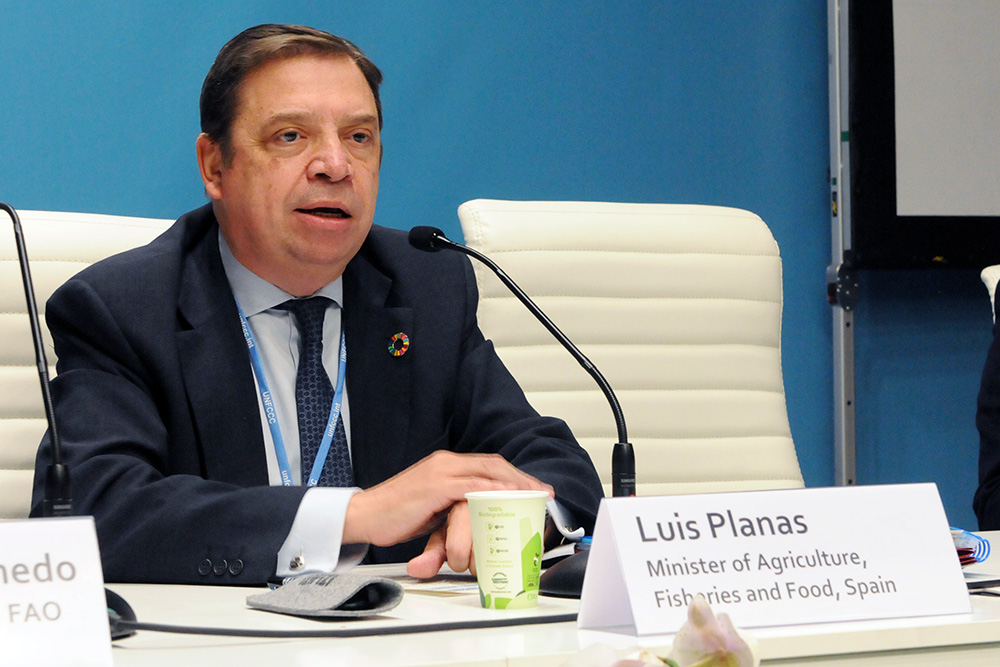
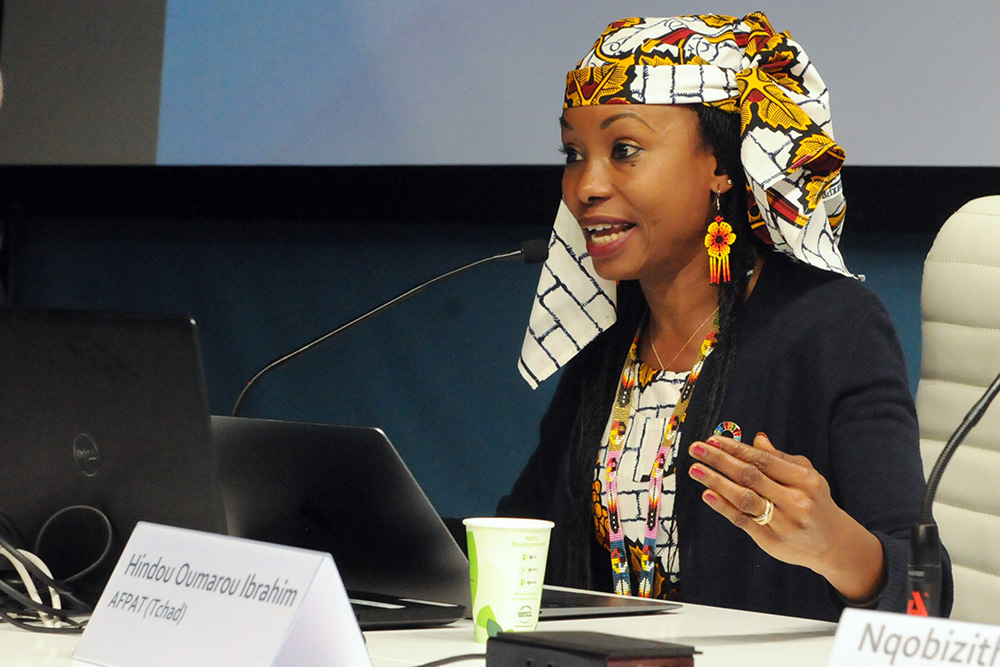
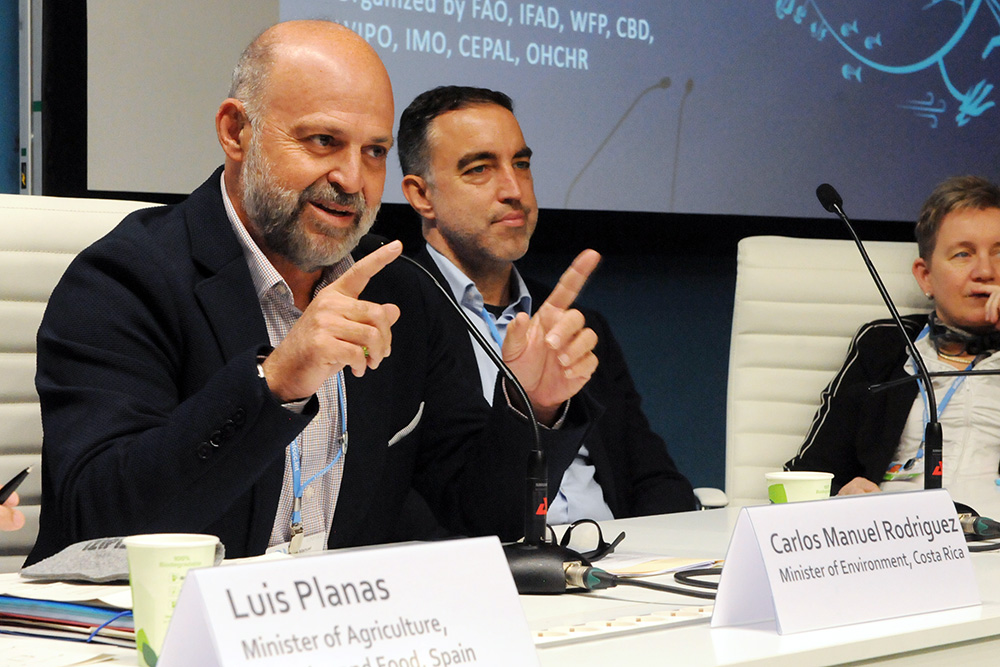
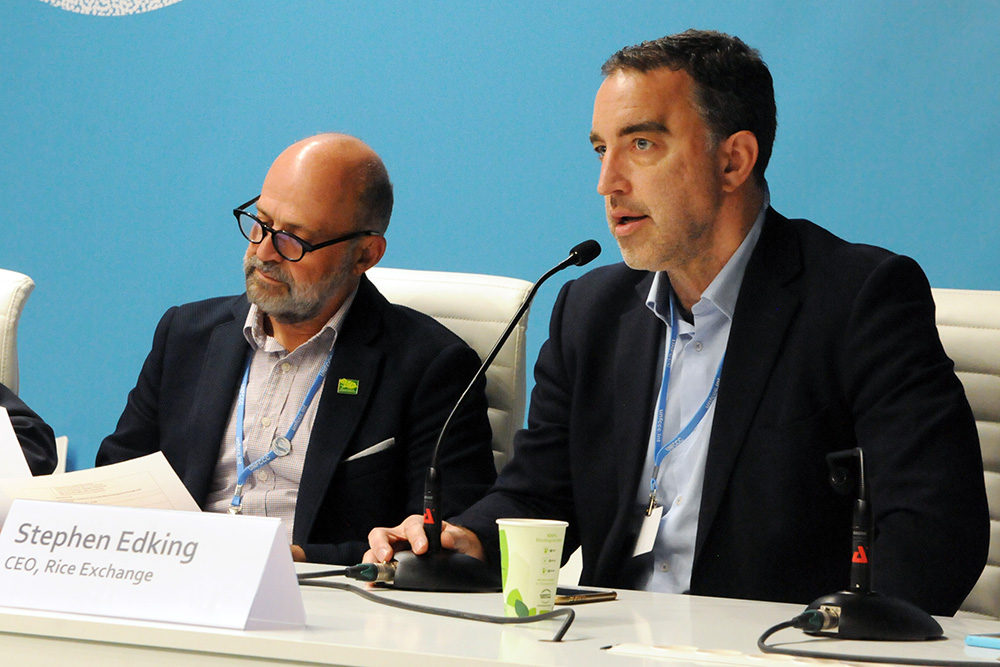
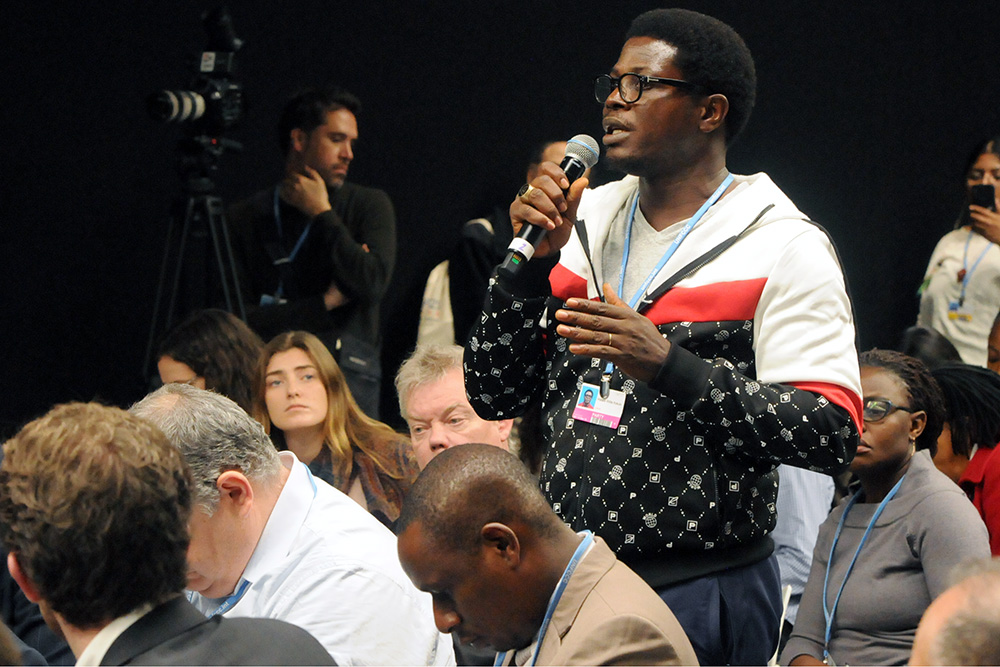
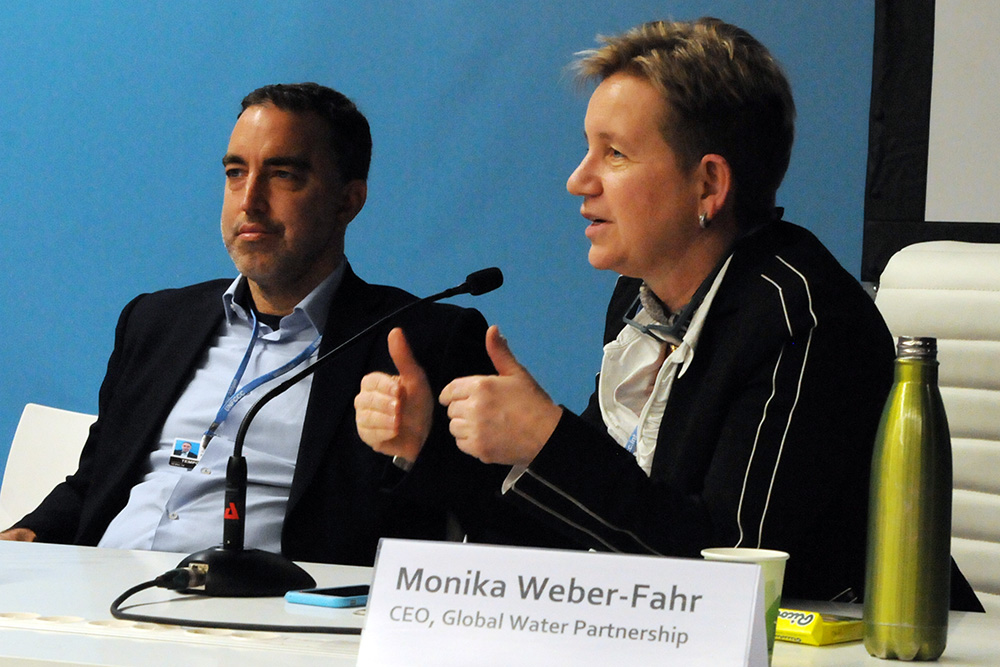
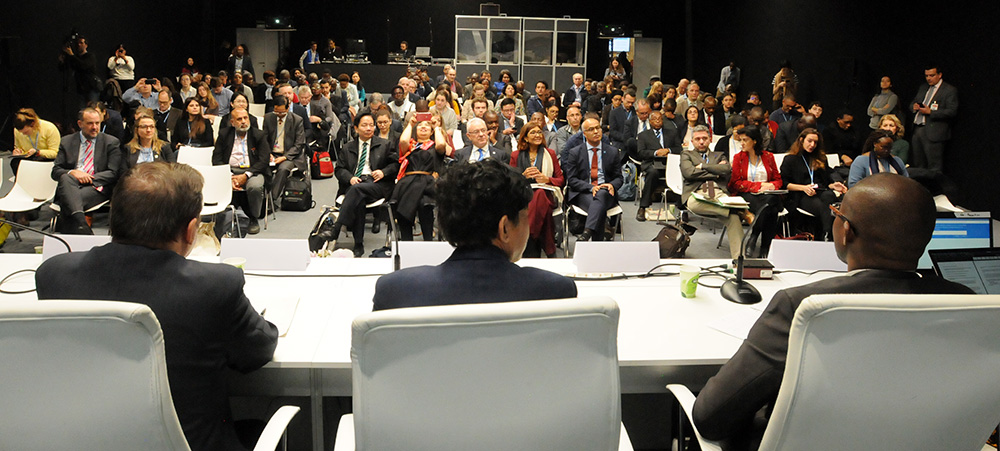
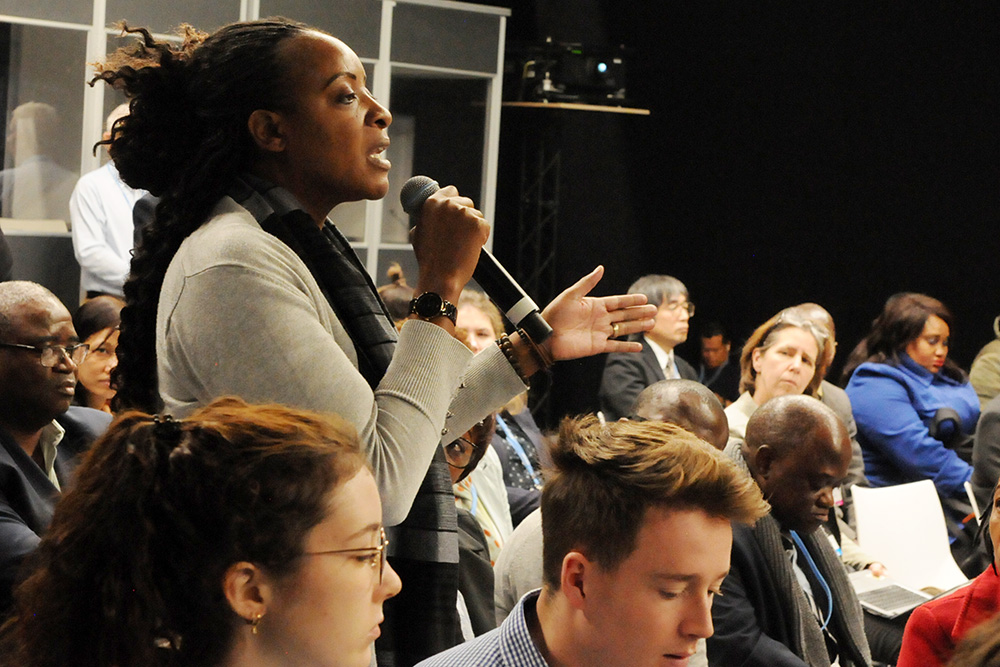
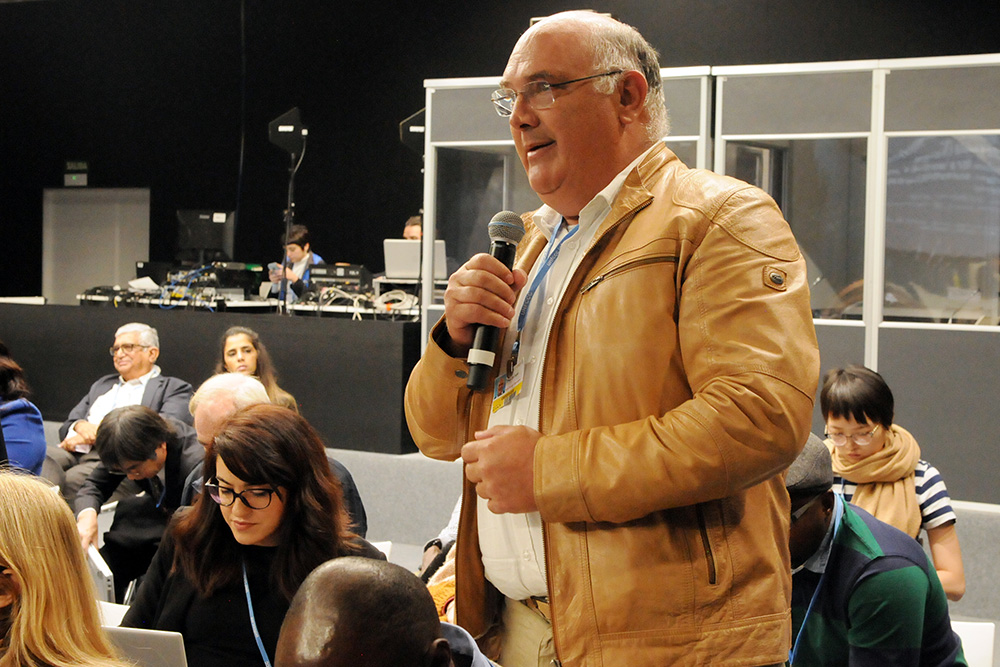
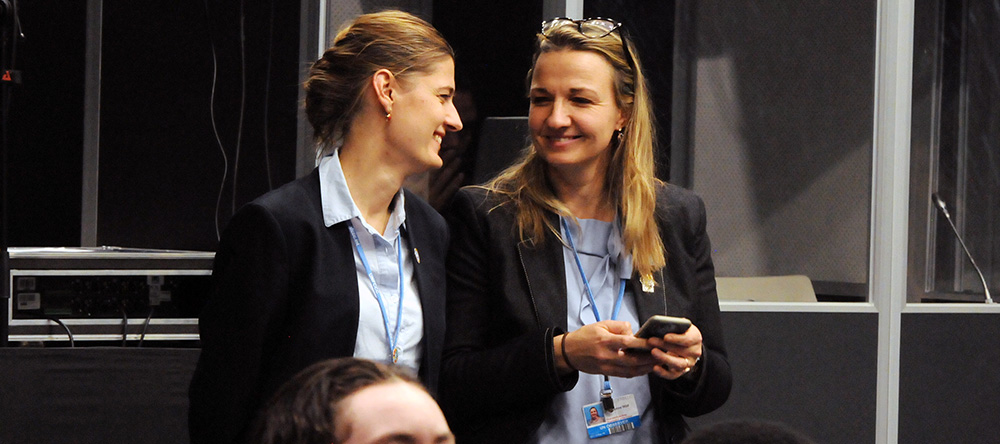
Enhancing Resource Efficiency and Reducing the Material Footprint to Meet Climate Commitments
Presented by the UN Framework Convention on Climate Change (UNFCCC) and the One Planet Network
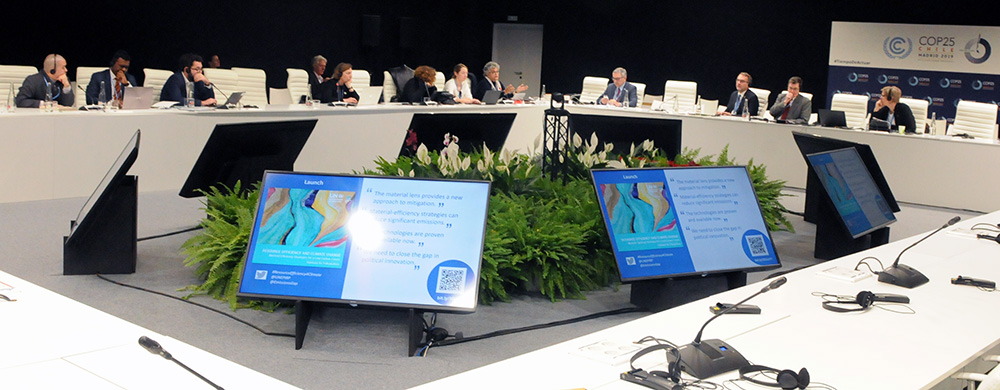
This event demonstrated the contribution of increased resource efficiency to climate mitigation, and the importance of applying resource efficiency policies and strategies for climate change mitigation plans to achieve the Paris Agreement goals. Presenters showcased scientific evidence, policies and actions taken to decrease the material footprint of the economy to accelerate and scale up greenhouse gas (GHG) emission reductions.
Mark Radka, Chief, Energy, Climate and Technology Branch, UN Environment Programme (UNEP), moderated the event, highlighting that achieving SDG 12 (sustainable consumption and production) through resource efficiency requires scientific evidence, policy support and adequate means of implementation.
Izabella Teixeira, Co-Chair, International Resource Panel, reported on the Panel’s Resource Efficiency and Climate Change report, highlighting that the production of materials causes over 23% of global GHG emissions, and that material efficiency offers an important opportunity to achieve the Paris Agreement. She added that materials production cannot be fully abated through electrification and energy efficiency, noting need for more efficient use of materials along the value chain. She also presented opportunities to reduce GHG emissions in residential buildings and private mobility.
Krista Mikkonen, Minister of the Environment and Climate Change, Finland, presented policies and tools for resource efficient and climate-friendly buildings and construction in her country. Noting that the sector is responsible for a third of global emissions, she emphasized that tackling emissions in construction is one of the most effective ways to mitigate climate change. She highlighted Finland’s sectoral low-carbon roadmaps to support carbon neutrality. Presenting actions to reduce the carbon footprint of building materials, she highlighted the Sustainable Buildings and Construction Programme that promotes resource efficiency.
René Castro-Salazar, Assistant Director-General, FAO, discussing progress in the food production sector, reported successes in Costa Rica in producing the world’s first officially certified carbon neutral coffee, through sustainable techniques such as reducing chemical sprays and planting more shade trees. He also noted Sri Lanka, India, and China’s production of zero-emission tea, adding that these trends are signs of sustainable production pushed by consumers.
Martin Frick, Director of Policy and Programme Coordination, UNFCCC, said the construction and manufacturing industries need to focus on product durability as a means to meet sustainable consumption and production. He noted the current trend of non-separable parts in cell phones, for example, is unsustainable and emphasized that consumer decisions are key in regulating production.
Inger Andersen, Executive Director, UNEP, lauded Europe’s ambition to be the first climate neutral continent, through its Green Deal, saying such initiatives are essential in promoting a circular economy and assuring profitable business models and quality of life of citizens. She urged producers to focus on the demand for quality and durable goods, and begin branding their products as circular, by engaging in decarbonization and detoxification processes.
Achim Steiner, Administrator, UN Development Programme (UNDP), noted that SDG 12 is one of the most neglected goals, and called for guidance on how to incorporate resource efficiency into nationally determined contributions (NDCs). He highlighted UNDP’s support for 100 countries in developing more ambitious plans and bold actions in their NDCs.
Gonzalo Muñoz, Founder, TriCiclos, and High-Level Climate Champion, Chile, said 45% of climate challenges can be solved by circular economy business models and products. He said that “if we shape the mindsets of how we manufacture products, we can effectively change consumerism practices into sustainability.”
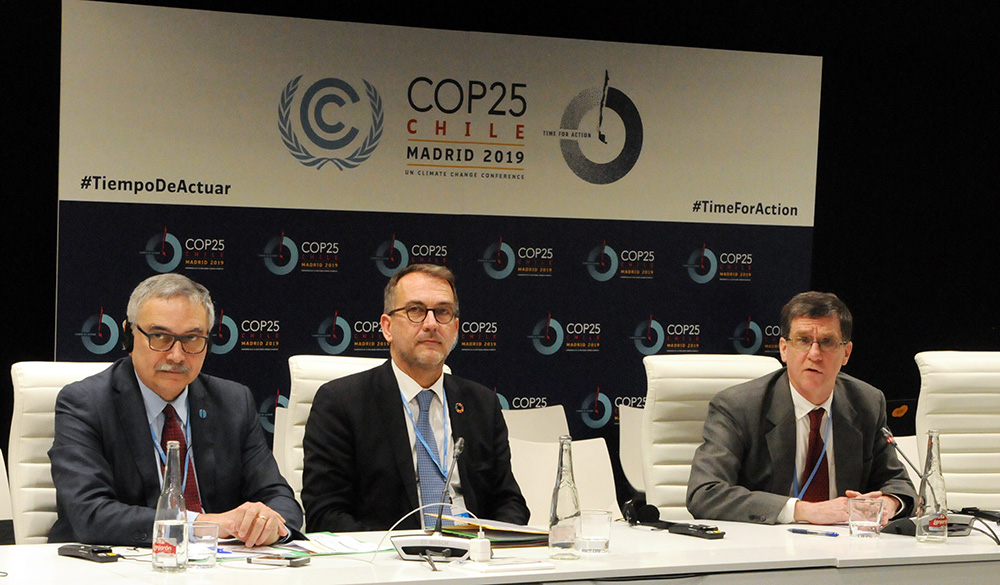
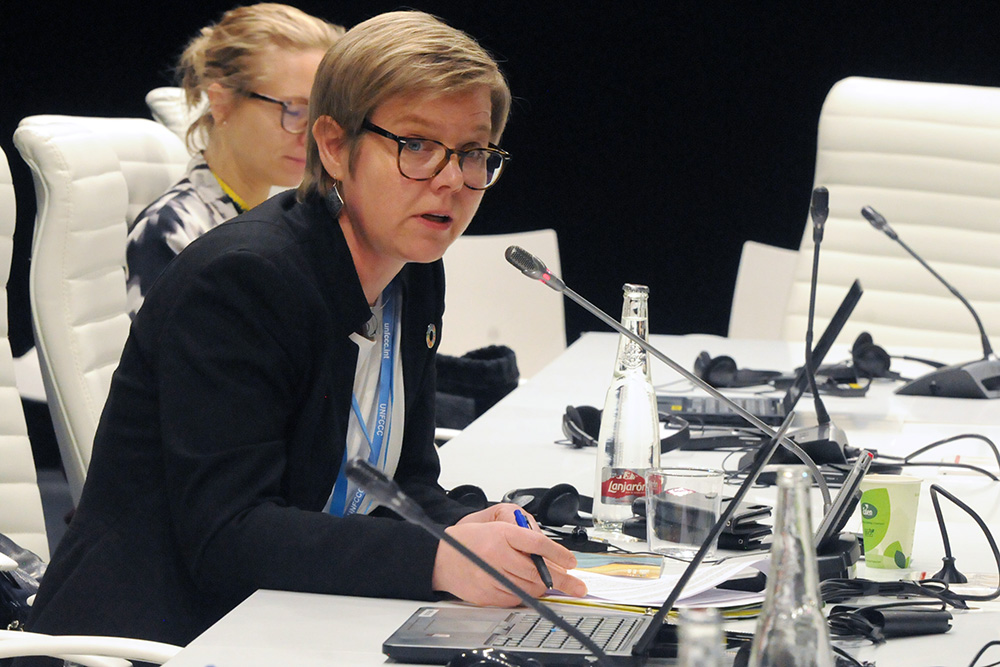
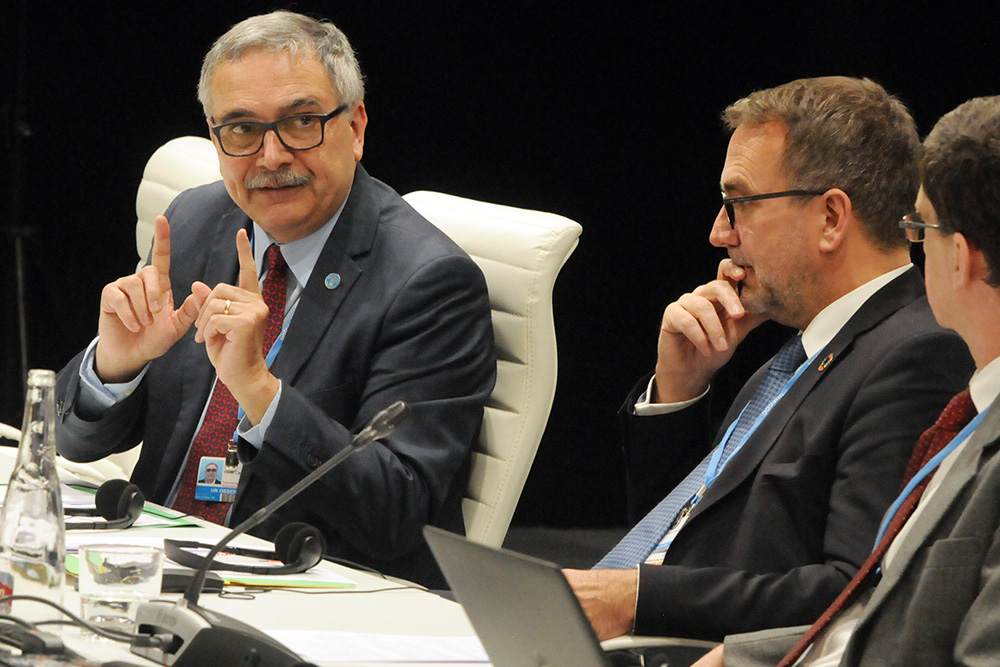
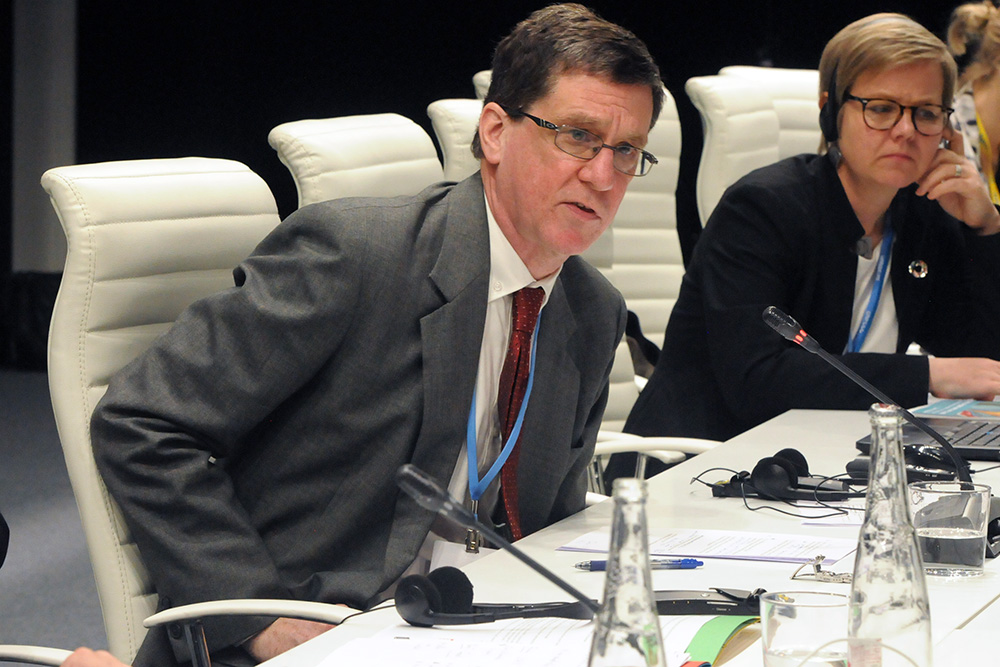
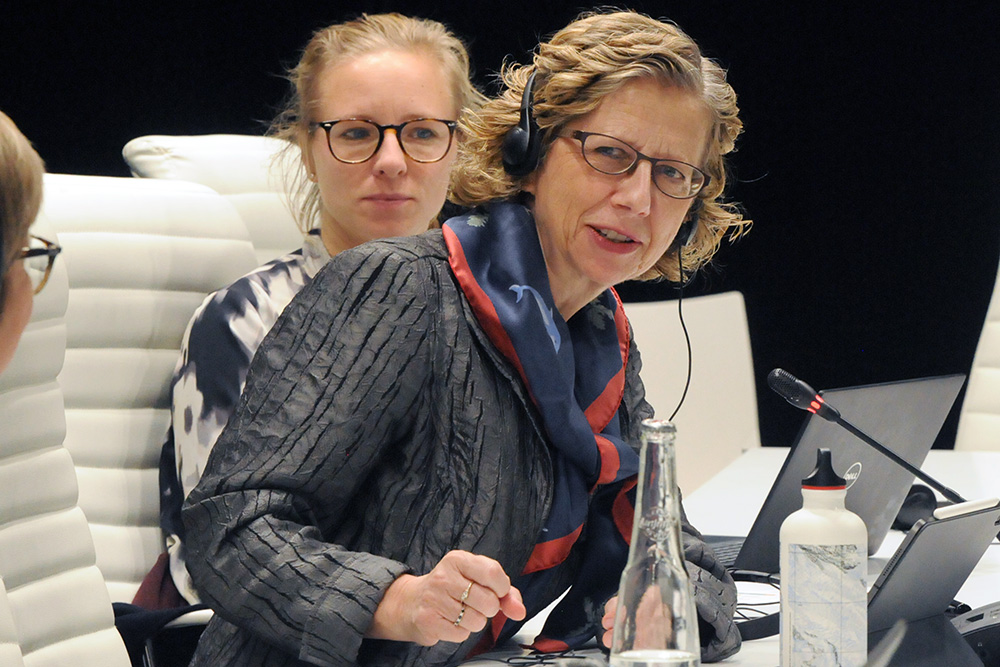
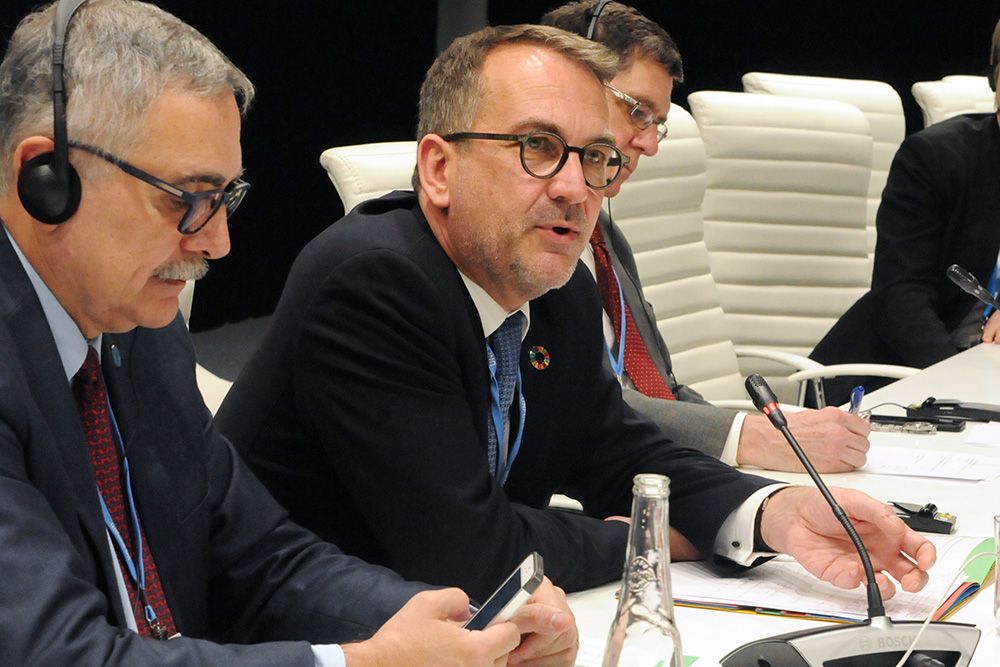
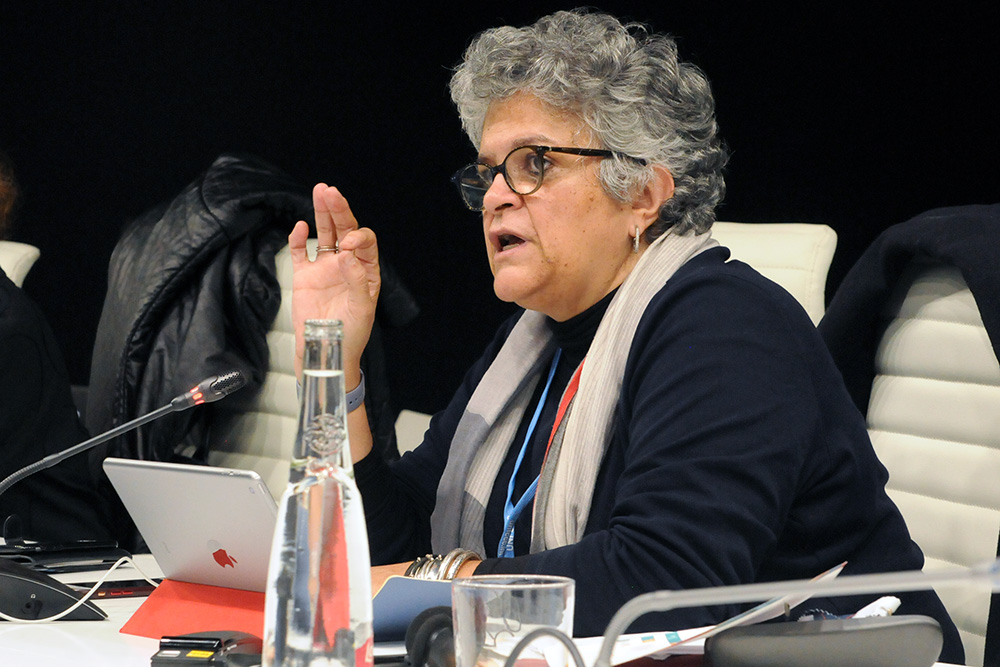
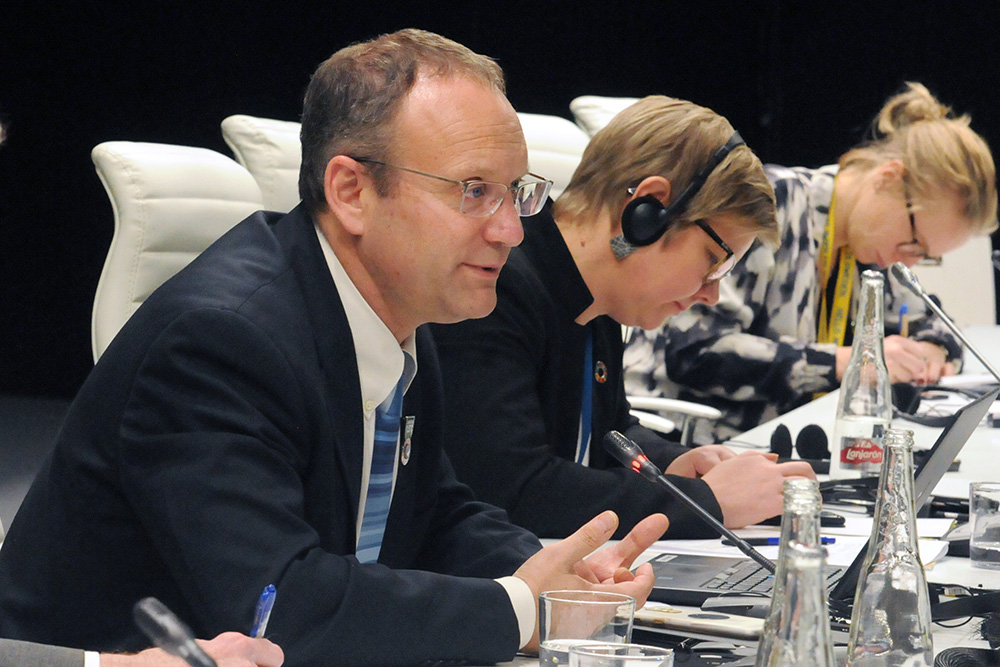
Around the Venue
